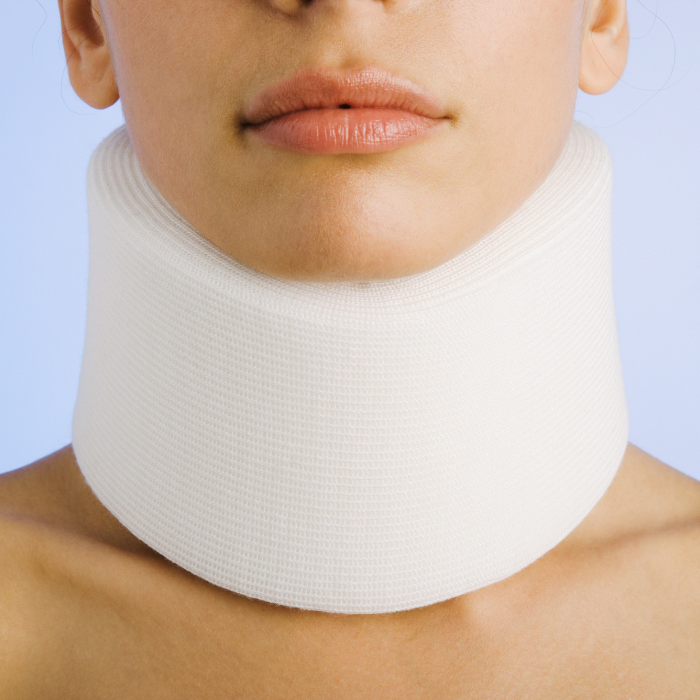Whiplash Treatment
At our center, we understand that whiplash, medically termed as Cervical Acceleration/Deceleration Syndrome, demands a nuanced approach. Recognizing its profound impact on patients’ lives, we advocate for medical massage as a cornerstone of recovery. This method addresses both the immediate discomfort and the long-term complications that stem from postural alterations and muscle guarding.
For those in the Bothell area seeking a path to recovery, we’re here to apply our specialized knowledge and help you regain control over your health.
Massage For Whiplash
A primer for Physicians, Therapists, and Medically Savvy Patients
Our treatments are tailored to combat the typical symptoms—ranging from neck and back pain to more intricate issues like TMJ pain and numbness—while focusing on reversing the muscle guarding habits that can persist. Through our expertise, we’re dedicated to guiding our clients towards a balanced recovery, leveraging massage therapy not just for symptom relief but for fostering a deeper, lasting healing.
Our
Whiplash Treatment
Healing Whiplash with Therapeutic Massage
Discover the power of therapeutic massage for whiplash recovery at our wellness center. Whiplash, or Cervical Acceleration/Deceleration Syndrome, often results from rear-end car collisions, leading to a spectrum of symptoms known as Whiplash Associated Disorder. Our specialized massage therapy targets these symptoms, including neck and back pain, headaches, and numbness, by addressing both the immediate discomfort and the long-term postural issues caused by muscle guarding.
Experience relief and regain your quality of life with our expertly designed massage treatments that not only reduce pain but also correct postural imbalances, preventing long-term complications such as disc degeneration and arthritis. Our approach focuses on overcoming dysfunctional neurological patterns through targeted therapy, aiming for balanced muscle tone and restored joint flexibility.

What Are The
Symptoms Of Whiplash
The most common complaints by a sufferer of whiplash is posterior (backside of the body) neck pain and cervico-genic headaches (headaches generated by the neck). Other common symptoms include shoulder pain, upper back pain, numbness in the neck, numbness in the shoulders, numbness in the arms, jaw clenching, jaw and head pain other than headaches, Temporo-Mandibular Joint (TMJ) pain, postural deviations (especially head forward posture with protracted shoulders), mid-back pain, and low-back pain.
Whiplash Pain, Disability, and Emotional Duress
The intensity of pain that results from a severe whiplash is always surprising to the patient, especially if the patient hadn’t previously “believed in” whiplash. Whiplash often has a significant psychological impact, as well as an impact on the patient’s abilities to perform her/his activities of daily life. As a medical massage provider I have two concerns for this patient: the initial pain from direct injury to the tissues involved, and the long-term neurological patterns that can be established from non-treatment of the postural deviations caused by muscle guarding.
Did You Know?
Massage Can Speed The Healing Of Whiplash
A massage practitioner with the proper knowledge and training can greatly decrease the healing time and improve the outcome for the whiplash patient. Normally the less time that passes between the date of injury and the first treatment the more rapid the healing and the better the outcome. Generally, the less ingrained a neurological habit the less time it takes to overcome it.
Unfortunately, not all massage therapists have the required training to achieve the desired results in the treatment of whiplash. In the next article we will talk specifically about how to find a well-trained massage therapist and what questions to ask. Whether you are a sufferer of whiplash, or a physician looking for useful information on how to help your whiplash patients, my hope is that you will find these articles useful.

WHAT CAN
Massage Do For Whiplash?
It is my experience that massage rendered by a qualified, experienced therapist can greatly aid in effectively defeating dysfunctional neurological habits such as an imbalance caused by antalgic posture. Addressing the muscles responsible for postural deviation is the key, not just to alleviating or preventing long-term residual pain and dysfunction, but also in raising patient awareness in order to make it possible for the patient to make conscious decisions to correct postural deviations.
Restoring Joint Balance, and Defeating Pain from Whiplash with Massage: A Structural Approach
Massage therapy Bothell, WAChronic joint pain and dysfunction can often be traced back to muscular imbalances that develop over time. When a joint experiences trauma—whether from an injury like whiplash, repetitive strain, or poor posture—the surrounding muscles...
Massage Therapy Care for Self-Love
Self-care Massage TherapyLate winter and early spring are the time for love and romance. However, one type of love that people are severely lacking is self-love. It’s easy to focus too much on all of the things you need to do- work, school, childcare, housework, etc.,...
Massage for Rainy Weather Symptoms
Massage Therapy Services in Bothell, WashingtonThis winter has been uncharacteristically warm across America. Washington, which usually has mild winters anyway, has been experiencing warmer temperatures than usual this winter. It feels like spring even though it’s...



